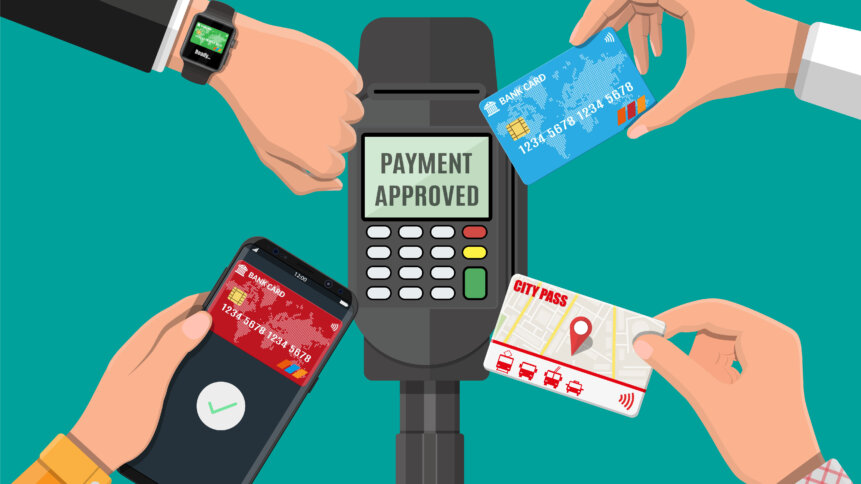As The Swiss Vote Against Becoming A Cashless Society, Will Other Countries Follow Suit?

|
Getting your Trinity Audio player ready...
|
Rumours of a cashless society have spread across the internet and media like wildfire in recent years. With cash being used less than ever before, there are those who believe we are destined for a society without cash.
One country where cash is still important is Switzerland. Still, the number of cash transactions has decreased in recent years with the FBS (Free Switzerland Movement) stating that cash’s role in society has been declining in economies worldwide. As electronic payments dominate transactions, there’s no doubt that we are becoming an evermore digitised society, but, as the FBS have said, this makes state surveillance much easier.
The Swiss Freedom Movement announced that they had collected 111,000 signatures in favor of holding a referendum on whether cash should continue to be used in Swiss society. The number of signatories means that the referendum will go ahead.
If it passes, the Swiss government will have to ensure that physical money (banknotes and coins) will always be available for future generations. The draft also proposes a vote on whether the Swiss Franc should be replaced with another currency or not. This could be in reference to the central bank’s digital currency.
The referendum gives the Swiss people an opportunity to ensure their economy never goes cashless. If the draft is approved, then it will become law, although it’s up to the Swiss parliament and government to decide on how the law will be implemented.
Will similar votes occur in other countries, such as the UK or USA?
A Cashless United Kingdom?
People have been using less and less cash in the UK for a number of years, even though the overall value of notes in circulation (NIC) has increased. This is thought to be because many people like to hold more cash these days, amplified by the Covid pandemic.
The pandemic changed the way we all use cash. However, even before COVID-19, the UK was experiencing a decline in cash used to pay for goods and services. In 2019, just 23% of all payments were made using cash, a drop of about 6% compared to a decade earlier.
During the early stages of the pandemic in 2020, this figure dropped by a further 35% as cash accounted for 17% of overall payments. Since 2017, cash use has declined by around 15% every year, accelerated in 2020.
There has been a slight recovery in total cash use post-Covid. 15% of all payments were made with cash in 2021 whilst an estimated 73% of consumers reported using cash in early 2022 – quite an increase compared to mid 2020, which was around half of consumers.
Cash use seems to have stabilised in the last two years, also evident in ATM withdrawals. The start of the pandemic saw a sharp decline in the number of ATM withdrawals in the UK (around 50%). But, cash withdrawals are back on the rise. Although overall cash use is still approximately 30% lower than before the pandemic, there’s indication of a stabilisation in cash use, at least for the short term.
Where cash use is going is uncertain. The change in payment preferences appears to have been accelerated by Covid. Then again, the people most likely to alter their payment habits probably already have, so the changes may slow. In fact, by 2031, UK Finance experts predict that 6% of all payments will be made using cash.
United States and Germany – Cashless or Cash Reliant?
In the U.S., consumers undoubtedly favour credit card use over any other form of payment. Nevertheless, it is believed that other payment methods could challenge the credit card’s throne. Take e-commerce, for example. Mobile wallets are already a preferred payment method in commercial transactions, but card payments are expected to remain the dominant form of digital payment for in-store transactions throughout the U.S. In 2021 alone, seven out of 10 transactions were made with a credit card.
But, 2022 saw a growing fear of credit card fraud. This may have a significant effect on the way future payments are made.
The U.S. may be one of the most likely countries to go cashless, considering that two fifths of American citizens used zero cash in 2022. Just seven years earlier in 2015, under one quarter of consumers preferred cashless transactions. One poll by Gallup found that three fifths of consumers only used cash on occasion in 2022. This is twice as much as only five years previously.
Like in the UK, the pandemic affected the way Americans made financial transactions. 20% of all payments in 2021 were made with cash, a decrease of 11% compared to 2016. Credit cards made up 28% of payments and debit cards were responsible for 29%.
As Lee Rainie, Director of Internet and Technology Research at Pew, stated – “people have literally been changing the way they pay for goods and services”. There’s no doubt that COVID-19 intensified the cashless trend, down to misguided fears that handling money would spread the virus. For a while, this actually caused a national coin shortage.
America may be in prime position to be one of the first cashless societies (if it ever happens), but what about another world superpower, Germany?
Germany is another country that has seen a significant change in spending patterns since the pandemic. Again, the trend towards cashless payments has accelerated with almost half of all Germans changing their payment behaviours. Nevertheless, cash still seems to be king in Germany, or as the German saying goes, “Nur Bares ist Wahres!” – “Only cash is King!” According to the European Central Bank, German citizens carry more cash than any other European Union country.
It is estimated that Germans withdrew around EUR 10 billion from their bank accounts at the beginning of the global pandemic as more and more decided to hoard cash. This was something of an exception from European nations. Savings deposits continued to increase throughout March 2020 in countries such as Italy, Spain, and France, but the opposite was occurring in Germany. Nonetheless, the trend was short-lived and many have redeposited cash since.
German society has been dominated by cash payments for a long time. But, since the start of the pandemic, there has been a marked increase in the number of cashless payments for stationary retail. This correlated with a change in payment behaviours. During the pandemic, it is estimated that 43% of German people altered the way they use cash and cards. Rather than using cash, as has been the norm for most Germans over the years, many have since opted for contactless and cashless payment methods. So drastic was the change that the German banking industry increased the limit of contactless payments in the giro card system from EUR 25 to EUR 50.
More and more businesses throughout Germany, and worldwide for that matter, have supported the rapid adoption of cashless payments, now allowing for contactless, cashless payments where cash was, not too long ago, the only payment method.
During 2022, four out of ten respondents surveyed said they preferred card payments over other cashless means in Germany. Bundesbank found that 29% of all payments made at the point of sale were made using a card, equating to 40% in terms of overall turnover.
Strategy consultancy payment experts estimate that the total share of cash payments in Germany will fall 20% by 2025. Over the next few years, if this trend continues, Germany could see an even greater percentage decrease regarding the use of cash in retail sales.
Cash continues to play a key role in societies worldwide but evidence indicates that more of us are going cashless. Whether this signifies a future cashless society, only time – and referendums – will tell.










